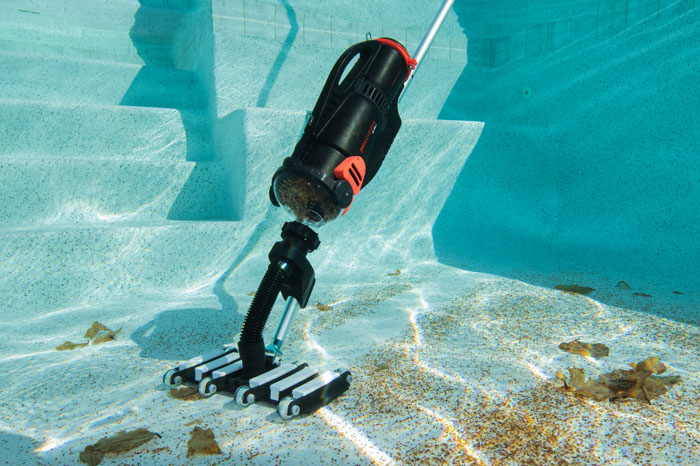A clean swimming pool is a must for keeping swimmers safe and ensuring lifeguards have a clear view to the bottom of the pool. Keeping your aquatic facility’s pools clean is a crucial task, and it requires many systems and maintenance steps, from sanitization systems and pool filters to daily and other regular tasks like clearing debris, maintaining water balance and more. Stay on top of the job by ensuring your staff has the tools they need to get the job done.
Q. What should we know about keeping our pool clean?
A. According to the U.S. Centers for Disease Control and Prevention, there are a number of factors involved in maintaining a clean pool. First, maintain free chlorine levels between 1 and 3 ppm, and maintain a pH level in the water of 7.2 to 7.8. You must test pH and disinfectant levels regularly—at least twice per day, and as often as hourly when your pool is seeing heavy use. Make sure your filtration and recirculation systems are maintained according to manufacturer recommendations. Finally, keep an accurate record of everything you do to maintain your pool, as well as disinfection and pH measurements.
In addition to all of this, you should make sure the surface of your pool is kept clean and free from debris. Keeping your pool’s surface clean will lessen the load on your filtration system, and will reduce the amount of chlorine and other water treatment chemicals needed to maintain sparkling, clear water. By cleaning your pool’s surface, you’ll remove debris and organic matter that can clog your filter and increase your pool’s demand for chlorine.
Q. What should we know about keeping our pool’s surface clean?

A. Debris and dirt can accumulate quickly in outdoor pools, and even indoor pools will see an accumulation of small particles and organic matter. In addition, while you can encourage guests to shower before getting into your pool, many will still bring dirt and other organic matter into your pool’s water. While your filtration system is designed to remove much of this material, vacuuming your pool on a regular basis is also important. If you ignore dirt and debris in your pool, algae and bacteria can proliferate, leading to cloudy water or other issues.
To clean the surface of your pool, you’ll want to invest in a pool vacuum designed for use in commercial pools. Your pool should be vacuumed on a regular schedule, and you should vacuum the pool more often if you see a lot of
debris, dirt or leaves on the floor
of the pool.
Q. What should we know about choosing a pool vacuum?
A. A number of considerations should factor into your choice of a pool vacuum, including the size of your pool as well as your typical bather load. Be sure you select a vacuum that is designed specifically for commercial pools.
Commercial pools are typically cleaned by part-time or seasonal staff, or even lifeguards in some cases. Using a cleaner that is easy to operate and quick to access is key.
If your facility has multiple pools, a hoseless, portable pool vacuum is a smart choice. Designed to do the job quickly and efficiently, a portable vacuum will operate independently from your primary pool filter. This makes things easier on your staff as there are fewer steps involved in setting up and running the pool vacuum, and it also puts less strain on your pool’s filtration system.
It can be difficult for corded robotic vacuum cleaners to maneuver around swimming lanes, so look for a cleaner that can work easily around swim lanes to save time and avoid hassle.
A portable commercial pool vacuum will efficiently remove dirt, debris and other unwanted matter without any hoses or cords. Your staff won’t have to walk back and forth to hook up hoses to the filter for suction, making this regular task more convenient and efficient.
For More Information
Water Tech Corp.
800-298-8800
www.watertechcorp.com



